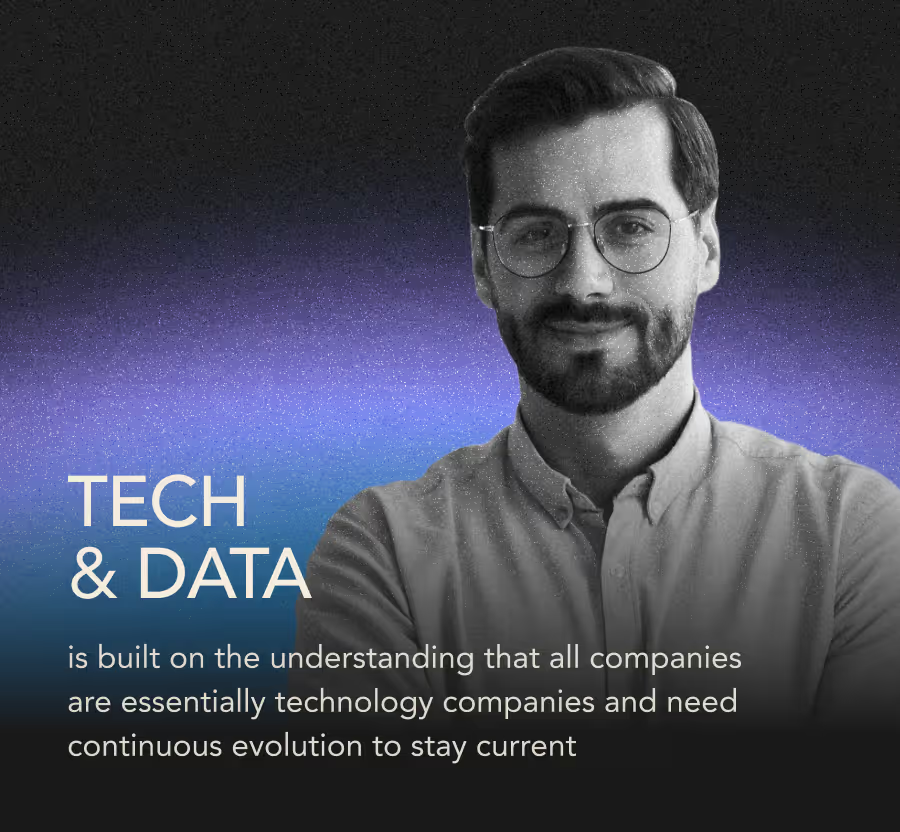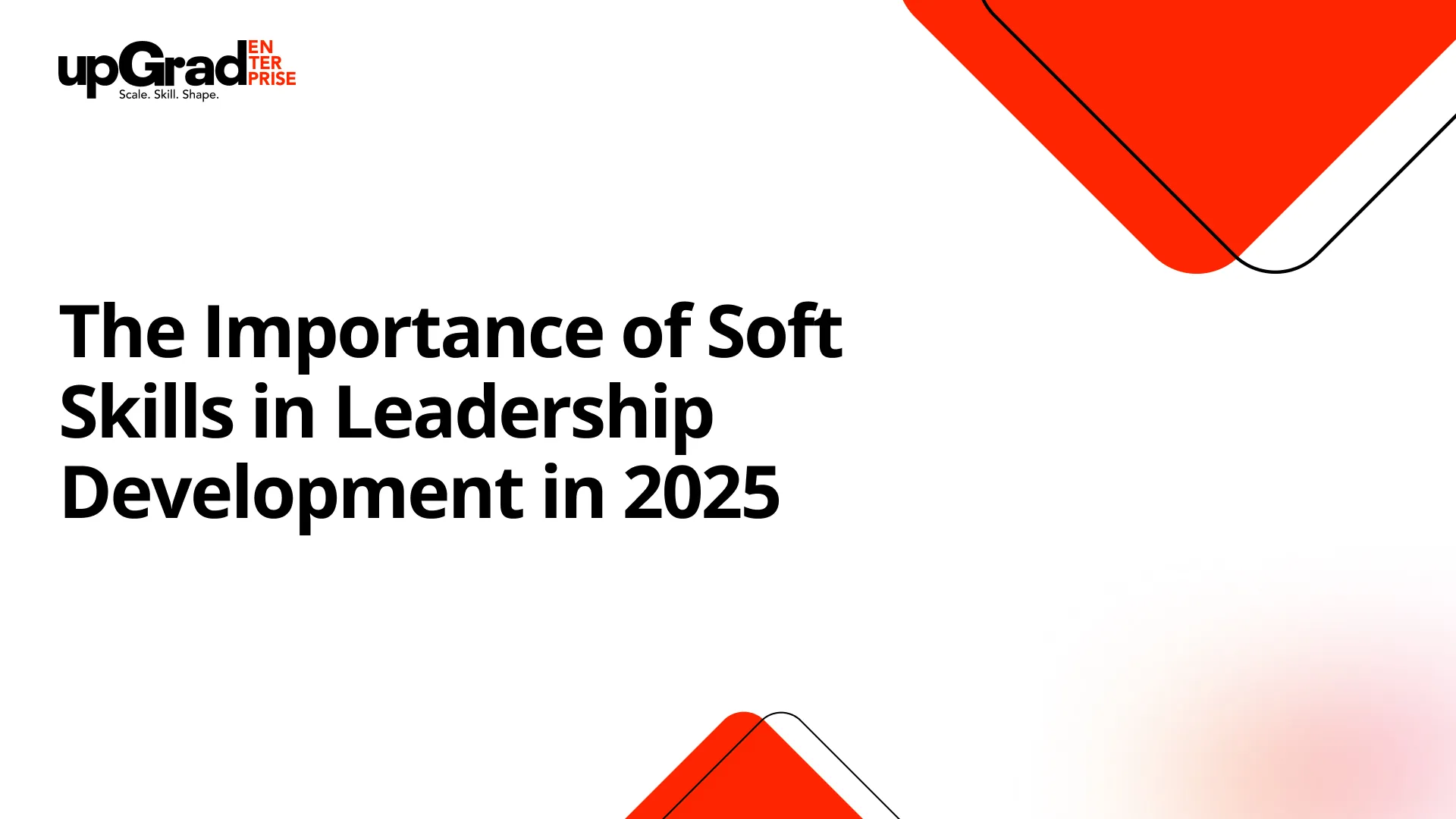In leadership, technical expertise and strategic thinking are important—but they’re not enough to inspire, guide, and sustain high-performing teams. The most effective leaders also possess strong interpersonal abilities that enable them to connect with people, navigate complex dynamics, and foster collaboration.
That’s why soft skills in leadership development have become a central focus for modern organizations. Skills such as communication, empathy, adaptability, and conflict resolution are critical for building trust, motivating teams, and driving change in today’s fast-paced business environment.
With proven expertise in corporate learning solutions, upGrad Enterprise designs leadership development programs that seamlessly integrate soft skills with strategic competencies. These programs help leaders not only achieve business goals but also cultivate inclusive, resilient, and innovative workplace cultures.
In this article, we’ll explore the role of soft skills in leadership, their impact on organizational success, and strategies for embedding them into leadership development initiatives.
Understanding soft skills in leadership
What are soft skills in leadership?
Soft skills in leadership refer to interpersonal, communication, and emotional intelligence abilities that help leaders connect with others, manage relationships, and navigate challenges effectively. Unlike technical skills, soft skills focus on how leaders interact, inspire, and influence.
Key soft skills for leaders
Some of the most critical soft skills in leadership development include:
- Communication — Clearly articulating ideas, active listening, and adapting messages to different audiences.
- Emotional intelligence — Understanding and managing one’s emotions while empathizing with others.
- Adaptability — Adjusting to change and guiding teams through uncertainty.
- Conflict resolution — Addressing disagreements constructively to maintain team harmony.
- Collaboration — Building relationships across departments and fostering teamwork.
Why they matter in leadership development
Focusing on soft skills in leadership development ensures leaders can inspire trust, create inclusive environments, and make decisions that consider both business outcomes and people’s well-being. These capabilities often differentiate average leaders from exceptional ones.
Benefits of integrating soft skills into leadership development
Stronger team engagement and morale
Leaders with strong interpersonal skills create an environment where employees feel heard, valued, and motivated—leading to higher engagement and job satisfaction.
Improved decision-making
Soft skills like active listening, empathy, and adaptability help leaders consider diverse perspectives, leading to more balanced and effective decisions.
Better conflict management
Training leaders in communication and emotional intelligence enables them to address disagreements early and constructively, reducing tension and fostering collaboration.
Greater adaptability in changing environments
Leaders with well-developed soft skills can guide their teams through uncertainty, helping them remain focused and productive despite shifting priorities.
Positive organizational culture
By modeling empathy, respect, and collaboration, leaders shape a culture that attracts and retains top talent, driving long-term success.
Strategies to develop soft skills in leadership programs
Integrate soft skills into existing leadership training
Instead of treating soft skills as separate modules, weave them into core leadership topics such as strategy, project management, and performance reviews.
Use experiential learning methods
Incorporate role-plays, simulations, and group activities that allow leaders to practice real-world communication, negotiation, and problem-solving scenarios.
Provide continuous feedback and coaching
Pair leaders with mentors or coaches who can observe their interactions, provide constructive feedback, and guide improvement over time.
Encourage peer learning
Create opportunities for leaders to share experiences, challenges, and solutions, fostering mutual growth and building a collaborative leadership community.
Measure progress over time
Use self-assessments, 360-degree feedback, and team surveys to track improvements in communication, emotional intelligence, and team management skills.
Measuring the impact of soft skills in leadership development
Link soft skills to specific business outcomes
Rather than measuring soft skills in isolation, track how they influence concrete business metrics. For example:
- Customer satisfaction scores can reflect improvements in leaders’ communication and empathy.
- Project delivery timelines may shorten when conflict resolution skills prevent delays.
- Employee retention rates often rise when leaders demonstrate trust-building behaviours.
Use behavioral competency frameworks
Adopt a structured model that defines what strong communication, adaptability, or emotional intelligence look like in leadership roles. These frameworks provide observable, measurable indicators rather than vague assessments.
Apply longitudinal measurement
Soft skills take time to mature, so a single post-training survey won’t capture the full picture. Conduct evaluations at multiple intervals—such as 3, 6, and 12 months—to assess how skills are being sustained and applied.
Gather 360-degree stakeholder feedback
Include perspectives from direct reports, peers, and senior leadership to see how leaders’ behaviour changes in different contexts. This multi-source approach helps identify both strengths and gaps that leaders themselves may overlook.
Combine quantitative and qualitative data
Pair hard data (KPIs, retention rates, customer metrics) with qualitative insights (feedback sessions, coaching observations) to create a comprehensive impact report. This makes it easier to justify continued investment in soft skills in leadership development.
Summing up — Elevating leadership through soft skills
In today’s workplace, the most effective leaders are those who can combine strategic vision with the human skills needed to inspire, guide, and unite their teams. Technical expertise may open the door to leadership roles, but it’s soft skills in leadership development that enable leaders to succeed and sustain long-term impact.
By embedding soft skills training into leadership programs, organizations can cultivate leaders who not only meet business goals but also build cultures of trust, collaboration, and resilience. These leaders are better equipped to handle change, manage diverse teams, and drive innovation.
Partnering with upGrad Enterprise allows businesses to design leadership pathways that integrate critical soft skills with strategic competencies, ensuring leaders are prepared for the evolving demands of modern organizations. The result is a leadership culture that is both people-centric and performance-driven.









